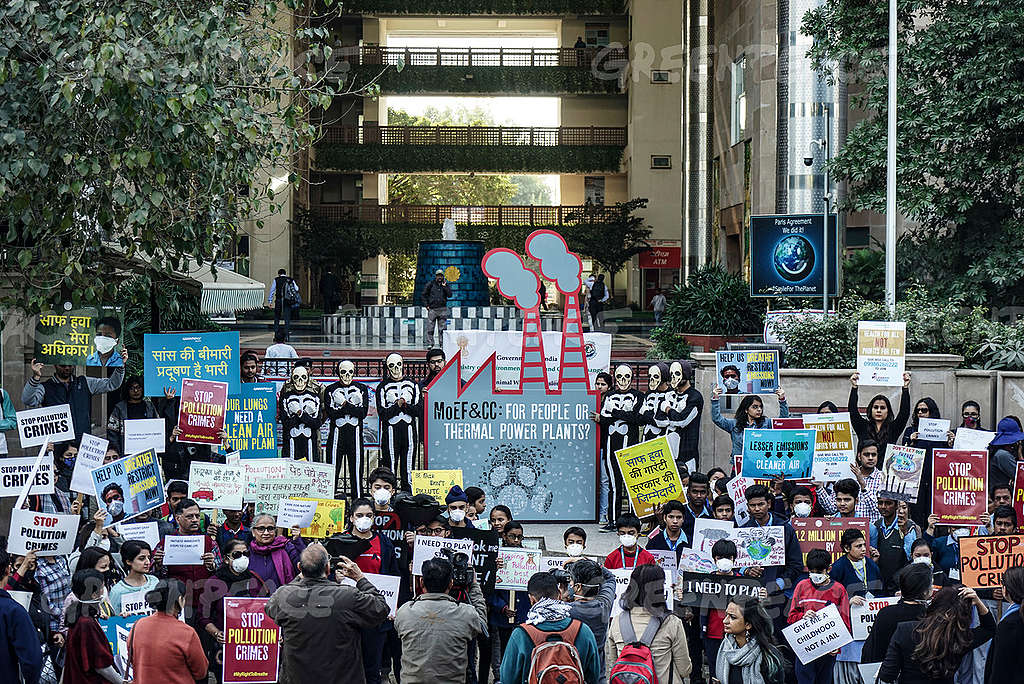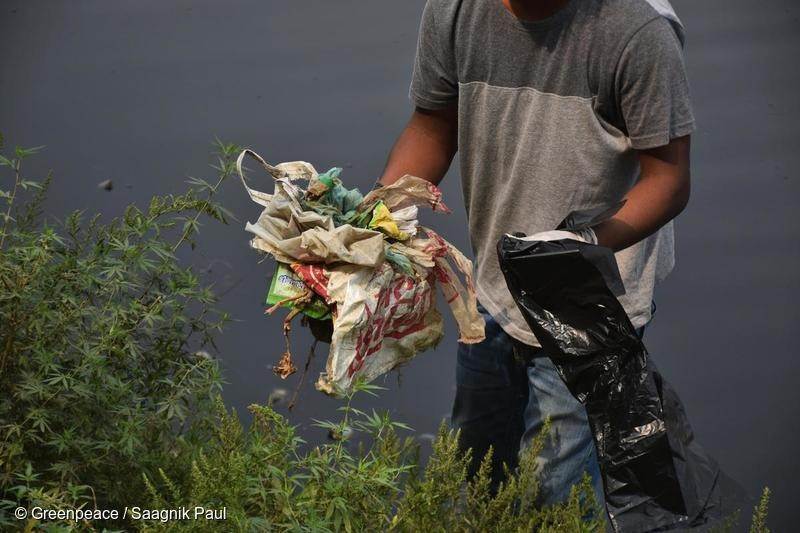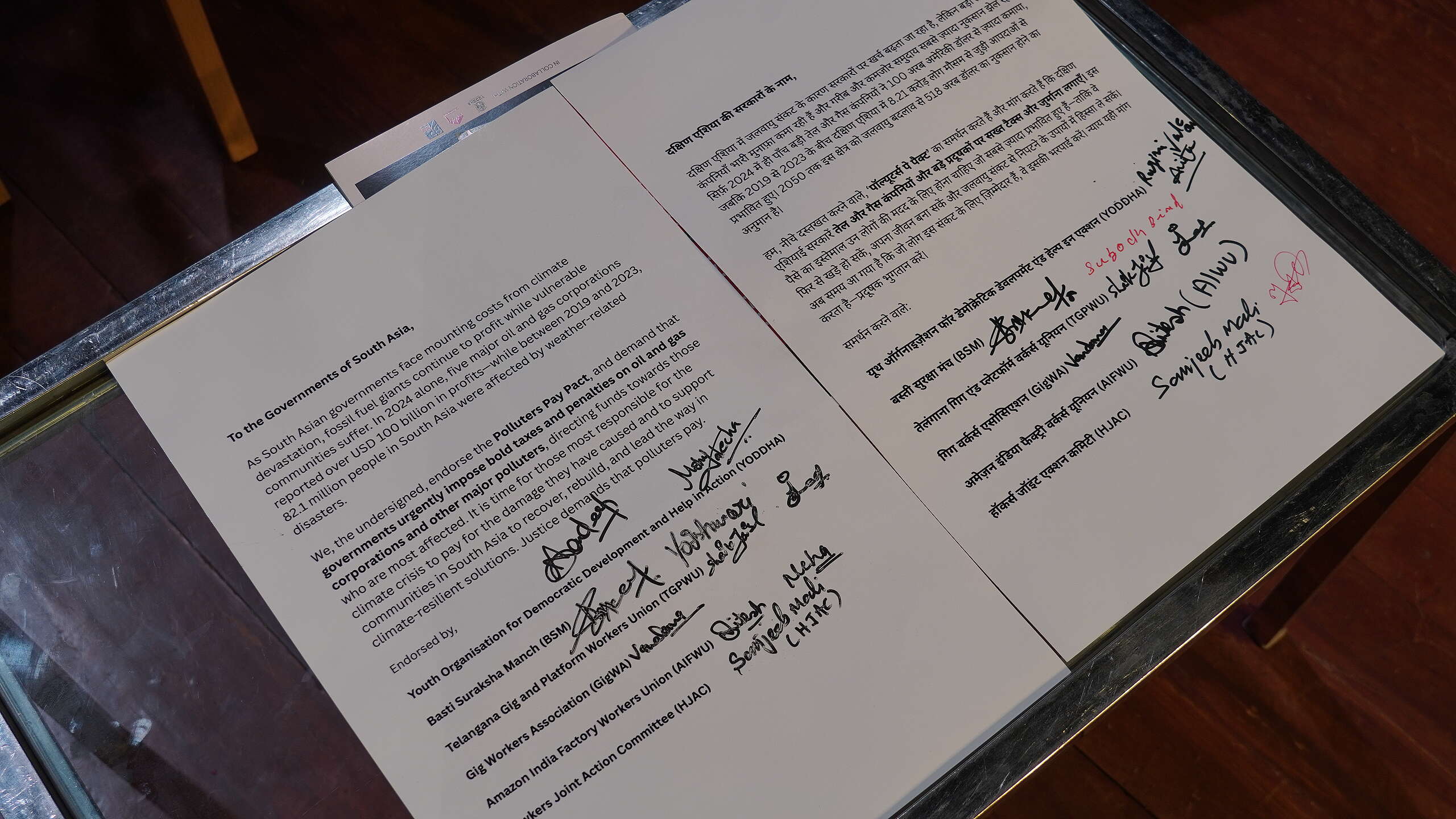
On 28th July, 2022, the UN General Assembly voted in favour of a historic resolution declaring access to a clean, healthy and sustainable environment as a universal human right. The resolution does not carry any legally binding obligations—rather it calls upon countries, international organizations and business enterprises to “adopt policies, enhance international cooperation, strengthen capacity-building and continue to share good practices” in order to shift towards sustainability and circularity. But what does this resolution mean, and how might it challenge our current extractivist and unsustainable model of development?
By speaking about the right to a healthy environment, the resolution provides a basis to frame our concerns around environmental degradation, pollution and climate change within the larger discourse of human rights. This will serve as a foundation for all relevant stakeholders and catalyse the articulation of legal systems which incorporate the right to a healthy environment within the human rights framework. It should encourage countries to introduce legislations based on this discourse within national constitutions and regional treaties. Another growing environmental conservation movement, the Rights of Nature, extends the framework of rights to nature and has already been adopted into the constitutions of Ecuador and Chile.
In a statement, UN Secretary-General António Guterres hailed the historical resolution, saying, “The resolution will help reduce environmental injustices, close protection gaps and empower people, especially those that are in vulnerable situations, including environmental human rights defenders, children, youth, women and indigenous peoples.”
However, the resolution was not passed without concerns being raised by representatives within the UN General Assembly, and these concerns have been echoed by others as well. These include:
- The lack of any clear internationally-agreed definition of the terms used (such as sustainability) as well as their scope renders the resolution too broad.
- The resolution does not carry any legally-binding obligations, thereby providing room for inaction.
- There is a lack of contextualization as the resolution doesn’t take national priorities or common but differentiated responsibilities into account.
- It lacks strong language for the provision of financial resources, capacity building and technology transfer which will be necessary for the global south to implement the right to a healthy environment. These provisions are crucial for the pursuit of just climate action as developed nations have been making assurances on climate finance for years now, without adequate follow throughs.
Despite these drawbacks, given the human rights-centric approach of this resolution, it should provide a better focus on the challenges faced by vulnerable communities and empower environmental and human rights activists. Now, there should be a greater urgency to fast-track just and equitable climate action. There are many issues that should benefit from the environmental conservation-human rights linkage and receive the required attention from those in power. These include, but are not limited to, issues such as tackling air pollution in Indian cities, empowering farmers and our food systems to be climate-resilient, adopting sustainable energy sources, and protecting vulnerable populations from climate-related calamities such as heatwaves, cyclones, floods—which is a growing threat in the Indian context.
It is a historical process at play and a landmark moment for climate justice. Is it too late, though? Or is there still time for activists to push for the resolution to be adopted into national constitutions, before adequate implementation becomes a priority? The resolution introduces a much-needed discourse on the international stage, but it doesn’t carry enough concrete measures. We need to go beyond incremental changes and implement fast-paced transformation in key sectors such as energy, land use, food systems, transportation etc. While this resolution is a welcome move, it is only a small step towards overcoming the climate crisis.





